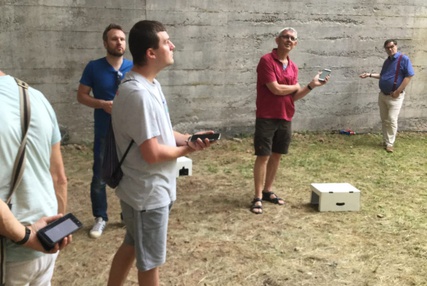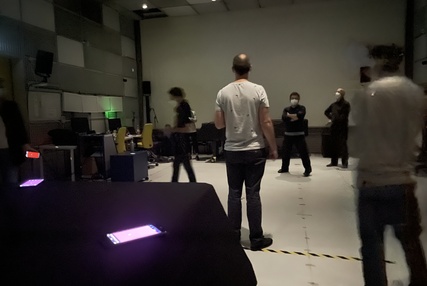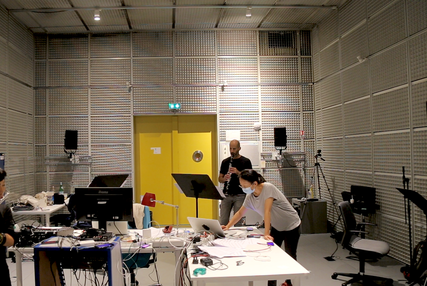Le nom même qu’ils ont donné à leur projet révèle ses origines : Astérismes. C’est bien d’astres qu’il est question ici, et de leur délicate mécanique.
« Si je ne m’appuie pas sur l’observation des phénomènes astronomiques pour composer, je m’en inspire certainement, dit Aki Ito, compositrice japonaise installée en France. Dans un système stellaire, chaque corps céleste a sa période propre, et c’est ce que j’aime aussi faire dans ma musique : faire cohabiter au sein d’une même pièce plusieurs « modules » de périodes différentes. Au départ, ces modules sont apparemment indépendants les uns des autres mais, comme en astronomie, tous les astres d’un système (étoiles, planètes, satellites, etc.), tel que le système solaire, agissent les uns sur les autres, modifiant parfois notablement leurs périodes. »
Un phénomène d’interaction gravitationnelle appelée « résonance orbitale », précise Aki Ito. C’est du reste grâce à ce genre de phénomènes que les scientifiques sont parvenus à détecter la présence de Neptune (en étudiant les perturbations de l’orbite d’Uranus) — et, plus récemment, un nombre faramineux de corps célestes, même extrasolaires —, jusqu’à déterminer leurs orbites exactes autour de leurs étoiles, sans jamais les voir.
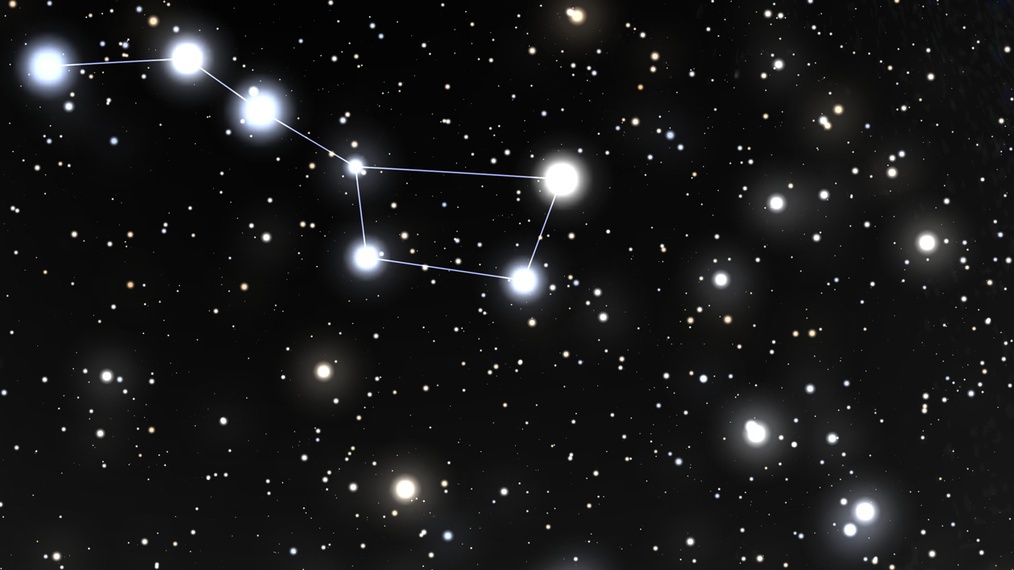 Photo : Jean-Philippe Lambert © Bastien Defives
Photo : Jean-Philippe Lambert © Bastien Defives
De son côté, Jean-Philippe Lambert, chercheur associée à Aki Ito dans le cadre du projet Astérismes, est un habitué de l’Ircam. Gravitant dans différentes équipes de l’Institut (Interaction son musique mouvement, Espaces acoustiques et cognitifs, Analyse et synthèse des sons, etc.), il a participé voilà quelques années un projet de recherche sur l’utilisation des navigateurs web pour la diffusion du son. L’Ircam a en effet contribué à l’outil WebAudio compris dans la cinquième mouture de la norme html (HTML5, la norme actuelle), dans une volonté de dépasser le seul dispositif technique pour en faire un véritable outil d’expériences et de réalisations sonores, voire de concerts.
Ainsi est né l’idée d’Astérismes : une forme de concert que l’on pourrait qualifier de « participatif et immersif », sans scène, et dans laquelle la diffusion sonore est distribuée dans le public, chacun de ses membres devenant une source sonore indépendante évoluant dans l’espace. Et la clef de cette diffusion se trouve dans quasiment toutes les poches : le smartphone.
« Les standards du web sont relativement ouverts, dit Jean-Philippe Lambert, une ouverture qui, de surcroit, a varié dans le temps et variera certainement encore. En l’état actuel des choses, lorsqu’une page est ouverte dans un navigateur de smartphone, le site internet hôte peut avoir accès à l’affichage, naturellement, mais aussi aux haut-parleurs de l’appareil, à ses capteurs de mouvement, et même à une portion de sa puissance de calcul… »
Les embuches techniques sont multiples pour diffuser ainsi de la musique : synchronisation de tous les appareils, envoi du son (sans saturer la mémoire du navigateur, ni les capacités de connexion), qualité du son obtenu, mixage… « Ne serait-ce que de faire sortir un son de manière correcte d’un téléphone à distance nous a demandé beaucoup de travail, dit Jean-Philippe Lambert. Ensuite, il faut arriver à en faire entendre plusieurs, à établir un lien entre eux, à constituer un écosystème, puis à l’orchestrer. » Le développement de l’outil devient alors étroitement lié à celui de l’œuvre musicale : les contraintes intrinsèques du premier (comme le fait de devoir faire son deuil de savoir où se situent exactement les sources et leurs positionnements relatifs en temps réel) deviennent des catalyseurs de créativité pour la seconde. Certaines contraintes techniques sont ainsi résolues par la créativité musicale, se révélant même très inspirantes, en ouvrant à de nouvelles possibilités, lesquelles seront ensuite développées musicalement. Et vice versa, dans un va-et-vient d’idées : « Nos (nombreuses) contraintes respectives sont souvent résolues par l’autre », souligne Jean-Philippe Lambert.
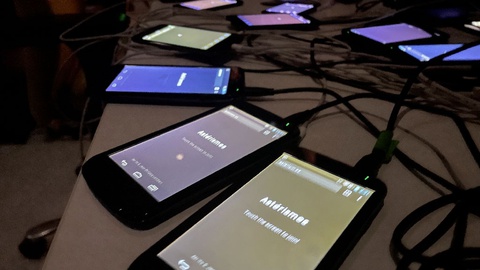
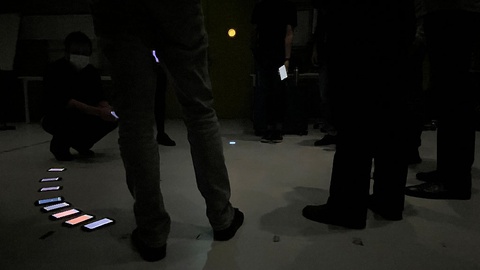
Projet Astérismes dans les studios de l'Ircam
« Je cherche à remplir l’espace sonore sans envahir les gens, dit Aki Ito. Et l’œuvre apparait chaque fois sous un visage différent, non seulement parce que je l’interprète différemment (je gère tous les sons à partir d’une tablette), mais parce que l’instrument dont je joue (les téléphones du public, qui ont chacun leurs caractéristiques audio propres, et le public lui-même, qui peut se promener dans l’espace, faisant fluctuer à tout instant la qualité du son synthétisé par l’ensemble) subit des variations — peut-être plus importantes que celles d’un instrument traditionnel — auxquelles nous devons nous adapter… »

Dans les épisodes suivants, nous nous intéresserons plus en détail à chacun des aspects de ce travail, ainsi qu’aux membres de l’équipe scientifique de l’Ircam qui s’en occupent plus particulièrement.



 Photo : Jean-Philippe Lambert © Bastien Defives
Photo : Jean-Philippe Lambert © Bastien Defives

